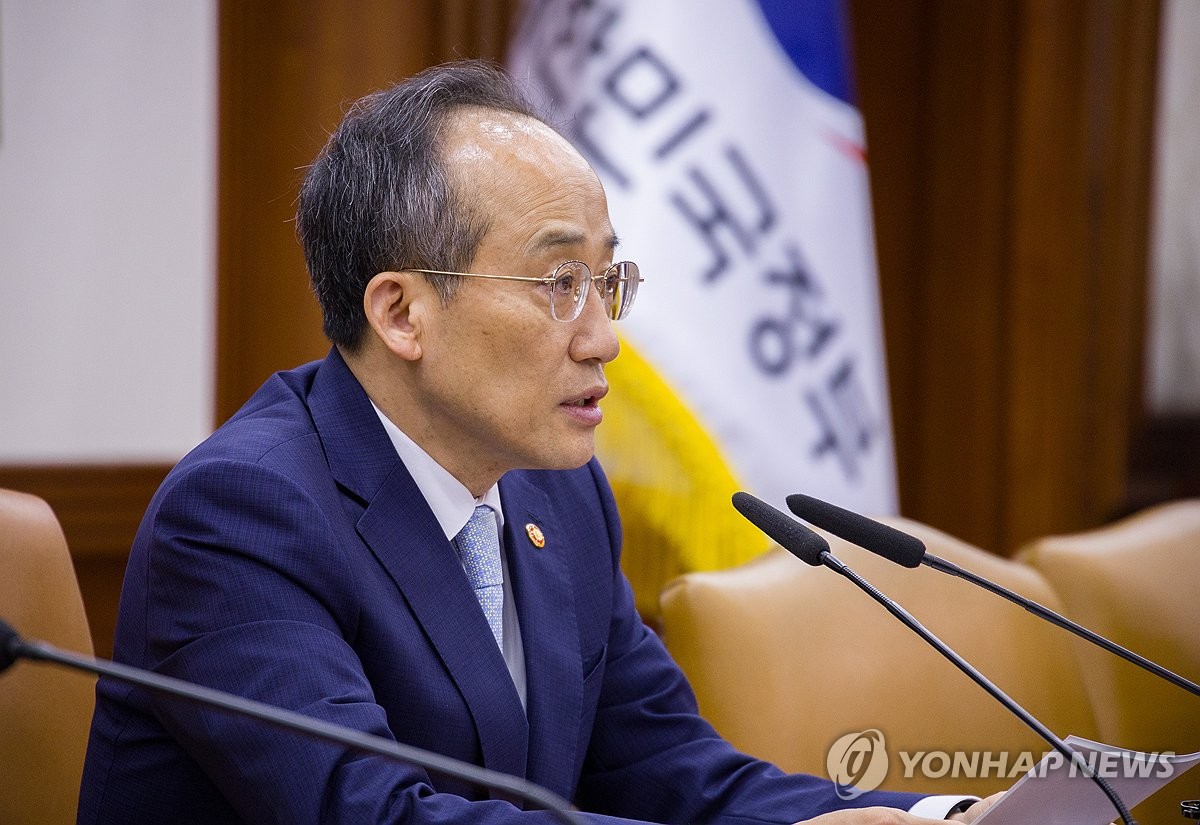- California Assembly OKs highest minimum wage in nation
- S. Korea unveils first graphic cigarette warnings
- US joins with South Korea, Japan in bid to deter North Korea
- LPGA golfer Chun In-gee finally back in action
- S. Korea won’t be top seed in final World Cup qualification round
- US men’s soccer misses 2nd straight Olympics
- US back on track in qualifying with 4-0 win over Guatemala
- High-intensity workout injuries spawn cottage industry
- CDC expands range of Zika mosquitoes into parts of Northeast
- Who knew? ‘The Walking Dead’ is helping families connect
S. Korea to extend fuel tax cut through year-end amid Israel-Hamas war
Finance Minister Choo Kyung-ho said Monday that South Korea will extend the tax cut on fuel consumption through December amid concerns about growing inflationary pressure caused by the conflict between Israel and the Palestinian militant group Hamas.
The government has applied a 25 percent discount on the consumption of gasoline and a 37 percent discount on the consumption of diesel, which was set to expire at the end of October.
“Oil prices are feared to jump, which will cause greater volatility in the real economy and financial and foreign currency markets, depending on the developments of the incident,” Choo said during an emergency economic ministers’ meeting.
“We will make all-out efforts to stabilize prices and the public’s livelihoods by thoroughly managing energy and food prices,” he said. “The government will temporarily extend oil subsidies through the end of this year and beef up on-site inspections into any price hikes riding on the volatility.”
On Friday, oil prices rose sharply as investors remained on edge about escalating geopolitical tensions in the Middle Eastern region.
U.S. West Texas Intermediate crude futures jumped 5.8 percent and international benchmark Brent crude futures with a December expiry surged 5.7 percent, both of which logged their highest daily gains in more than six months, data showed.

South Korea has not suffered any major disruptions in energy supplies so far, and no major issues have been reported from domestic businesses in the Middle East regarding the ongoing war, the minister said.
But it is feared the fighting will escalate into a wider conflict and affect energy production and supplies, as the Middle East accounts for more than one-third of global seaborne oil trade.
South Korea depends on imports for most of its energy needs, and some 67 percent of its crude oil purchases and 37 percent of its total gas deals come from the Middle East.
“The government will beef up the monitoring of the financial market and the real economy round-the-clock, and will appropriately respond to any cases in accordance with our scenario-based plans,” Choo said.
In September, consumer prices reported the highest on-year increase of 3.7 percent in five months, but the government forecast price pressures would begin to ease starting around October.
South Korea set this year’s target at a 3.3 percent rise, while the figure during the first nine months of 2023 came to 3.7 percent.











